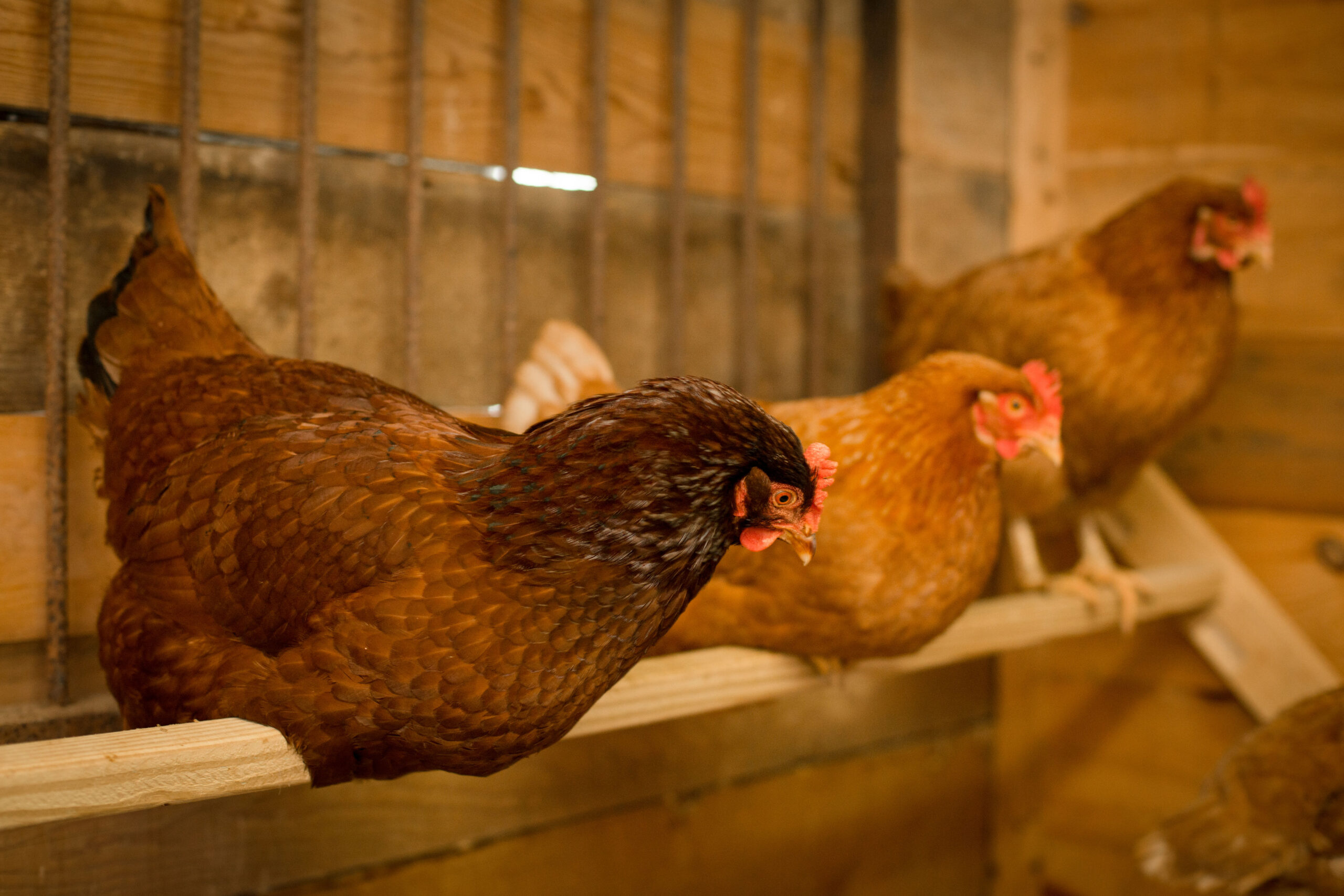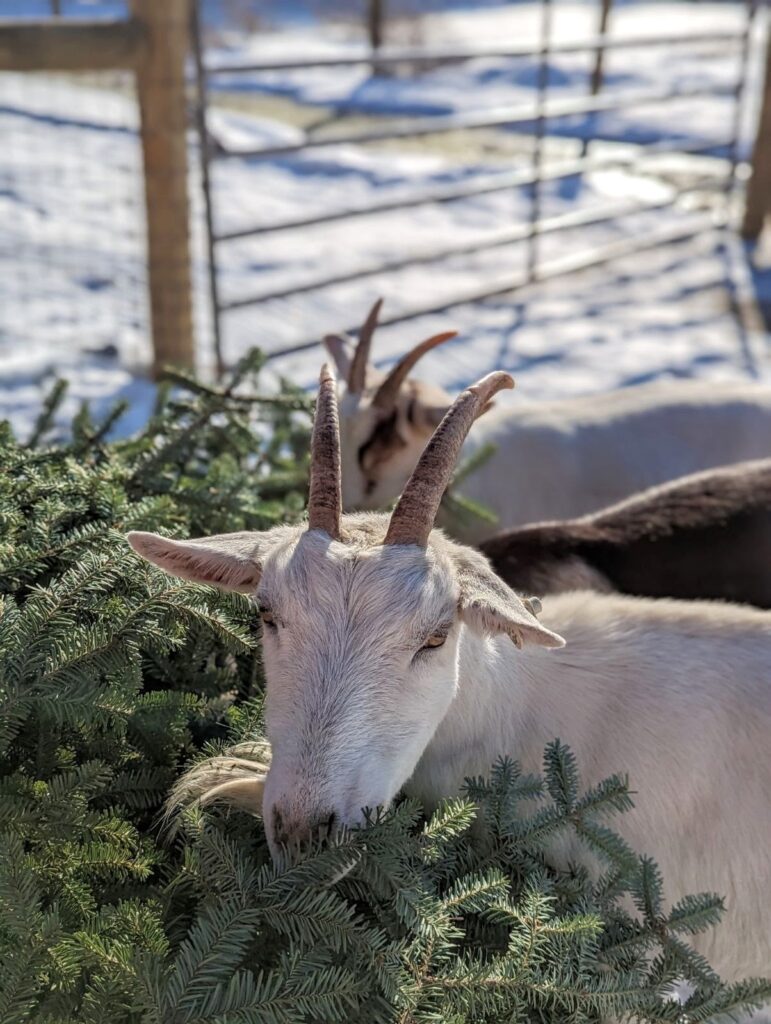When we picture farms, we imagine red barns, green pastures, and animals roaming freely in the sunshine. It’s an image rooted in tradition and childhood stories. But today, most farmed animals live very different lives.
The state of farmed animals
Over the past 50 years, global meat production has more than tripled. To meet demand, farming has shifted from small family operations to large industrial systems. These “factory farms” now raise nearly all U.S. farmed animals in crowded conditions that limit their ability to move, roam, or care for their young.
Farmed animals are not so different from the dogs and cats we share our homes with. Goats play with their friends, chickens follow you around the yard, pigs form lasting friendships. They feel joy, comfort, and connection.
And yet, our culture draws a line: some animals are companions, others are food. That line isn’t based on how smart, social, or sensitive the animals are — it’s tradition.

An estimated 99% of U.S. farmed animals live on factory farms.

Animal agriculture accounts for 12%-19.6% of global greenhouse gas emissions.
More than an animal issue
Industrial farming doesn’t just impact animals. It touches nearly every part of our lives:
- The planet we share. Raising animals at an industrial scale uses enormous amounts of land, water, and energy. By caring about how and where food comes from, we also care for clean air, fresh water, and healthy ecosystems that future generations will depend on.
- Farms and farmers. As factory farming has grown, small family farming struggles to survive. Supporting local food and sustainable farming practices that value animals and land helps keep rural communities strong and independent.
- Workers and communities. Jobs in large facilities are often low-paid and high-risk, with workers facing unsafe conditions. Overcrowded farms also increase the risk of disease outbreaks, which can spread beyond the farm itself.
A different farming future
At City Goat Farm, we offer a different vision: one where animals are respected as individuals, farming is rooted in compassion and care for the earth, and communities can reconnect with animals in a way that reflects kindness rather than separation. By seeing farm animals for who they are — not just as units of production, but as beings with needs and personalities — we open the door to a more compassionate and sustainable future for everyone.



